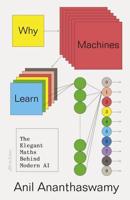Publisher's Synopsis
A study of evolutionary processes that involve the combination of systems of semi-independently preadapted genetic material rather than the linear or sequential accumulation of slight modifications; with computational models that illustrate these mechanisms.
No biological concept has had greater impact on the way we view ourselves and the world around us than the theory of evolution by natural selection. Darwin's masterful contribution was to provide an algorithmic model (a formal step-by-step procedure) of how adaptation may take place in biological systems. However, the simple process of linear incremental improvement that he described is only one algorithmic possibility, and certain biological phenomena provide the possibility of implementing alternative processes. In Compositional Evolution, Richard Watson uses the tools of computer science and computational biology to show that certain mechanisms of genetic variation (such as sex, gene transfer, and symbiosis) allowing the combination of preadapted genetic material enable an evolutionary process, compositional evolution, that is algorithmically distinct from the Darwinian gradualist framework. After reviewing the gradualist framework of evolution and outlining the analogous principles at work in evolutionary computation, Watson describes the compositional mechanisms of evolutionary biology and provides computational models that illustrate his argument. He uses models such as the genetic algorithm as well as novel models to explore different evolutionary scenarios, comparing evolution based on spontaneous point mutation, sexual recombination, and symbiotic encapsulation. He shows that the models of sex and symbiosis are algorithmically distinct from simpler stochastic optimization methods based on gradual processes. Finally, Watson discusses the impact of compositional evolution on our understanding of natural evolution and, similarly, the utility of evolutionary computation methods for problem solving and design.










